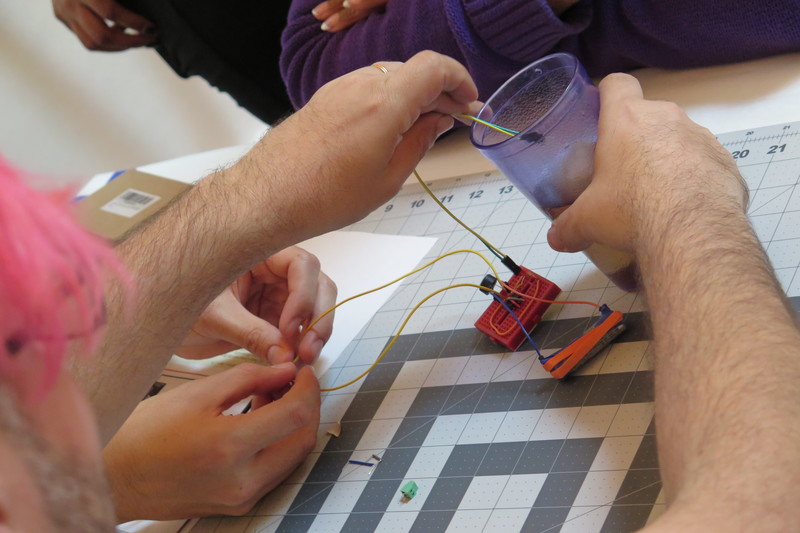
We've used the Coqui to get information about the salinity of water by measuring relative amounts of conductivity, and some folks have been wondering about ways to get accurate measurements. My question has a few parts:
At Barnraising, folks used a guitar tuning app to measure the frequency of the Coqui. I'm wondering if this is a method that could be calibrated against the specific gravity of a known sample (say, using a hydrometer to measure aquarium salt in distilled water) to get accurate quantitative information?
Is there any reason that a multimeter couldn't be used the same way that the coqui and tuning app are? By say, checking the resistance of a sample against a few different of levels of salinity with both a multimeter, comparing that to a hydrometer measurement, and figuring out how ohms translate into gravity?
The reason multimeters aren't used for measuring the resistance of a solution is polarization. It's a fancy word, but by passing direct current through a solution, you generate gas (hydrogen or oxygen) that blocks the electrode makes the resistance value incorrect. Look at it another way, your electrolyzing water and blocking part of the electrode.
Over a short term measurement, this might not be significant. But that is why conductivity meters use AC.
Don't know about the coqui. But in industry, one way to measure density is a modified tuning fork. Sounds funny, but they have a glass tube ,shaped like a U, that they fill with the liquid and then measure the resonant frequency. From that, you can derive the density.
Oh wow, thanks! This is really helpful, I'll look into the tuning fork method.
You can buy the instruments with a microprocessor attached. All you have to do is take a syringe, put the liquid in the glass tube, and it will ring the glass I tube, calculate the frequency, and back calculate the density. They weren't cheap. Don't know what they are now.
Reply to this comment...
Log in to comment